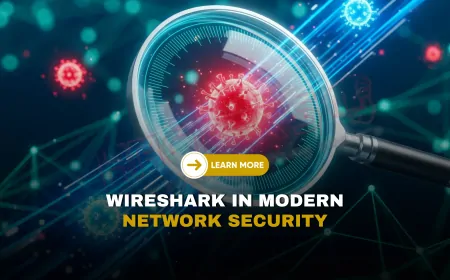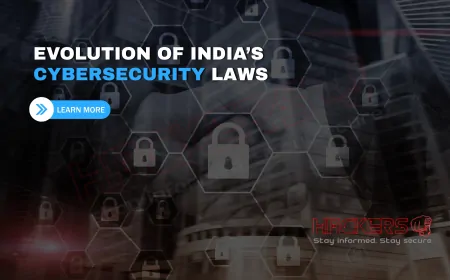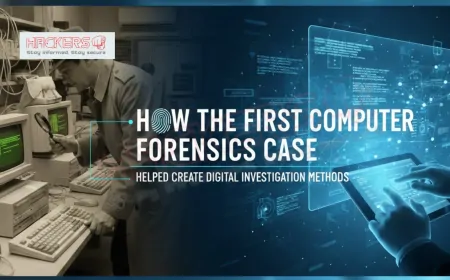How Azure IoT Certification (AZ-220) Shapes the Future of IoT Careers
The Internet of Things (IoT) is no longer a futuristic concept—it's here, transforming industries, homes, and cities. From smart thermostats to connected factories, IoT devices are creating a world where data drives decisions in real time. But with this rapid growth comes a demand for skilled professionals who can design, deploy, and manage these systems. That’s where the Microsoft Azure IoT Developer Specialty certification (AZ-220) comes in. This certification is a game-changer for anyone looking to build a career in IoT, offering a structured path to mastering the tools and skills needed to thrive in this dynamic field. In this blog post, we’ll explore how the AZ-220 certification can shape your career, why it’s relevant in today’s tech landscape, and how it equips you to tackle real-world IoT challenges. Whether you’re a beginner curious about IoT or a seasoned professional aiming to upskill, this guide will show you why AZ-220 is a stepping stone to a bright future.

Table of Contents
- What Is the AZ-220 Certification?
- Why IoT Matters in Today’s World
- Benefits of Earning the AZ-220 Certification
- Skills Covered in the AZ-220 Exam
- Career Opportunities with AZ-220
- How to Prepare for the AZ-220 Exam
- Real-World Applications of AZ-220 Skills
- Conclusion
- Frequently Asked Questions (FAQs)
What Is the AZ-220 Certification?
The AZ-220, officially titled Microsoft Azure IoT Developer Specialty, is a certification offered by Microsoft to validate your ability to implement IoT solutions using Azure services. It’s designed for professionals who want to demonstrate expertise in developing and managing IoT solutions, from connecting devices to analyzing data and ensuring security.
Unlike general IT certifications, AZ-220 focuses specifically on IoT development within the Azure ecosystem. It covers everything from setting up IoT devices to processing data streams and integrating with other Azure services like Azure Stream Analytics and Azure Functions. By earning this certification, you prove you can handle the end-to-end lifecycle of an IoT project.
Why IoT Matters in Today’s World
IoT is revolutionizing how we interact with technology. Imagine a world where your refrigerator orders groceries when you’re running low, or a factory automatically adjusts its machinery to prevent breakdowns. That’s the power of IoT—connecting devices to make life smarter and more efficient.
Here’s why IoT is a big deal:
- Growing Market: The IoT market is expected to grow exponentially, with billions of connected devices by 2030.
- Industry Impact: From healthcare to manufacturing, IoT is streamlining operations and improving outcomes.
- Data-Driven Decisions: IoT devices generate massive amounts of data, enabling businesses to make informed choices.
- Career Demand: Companies need skilled IoT professionals to design and manage these systems.
The AZ-220 certification positions you at the heart of this transformation, equipping you with the skills to build solutions that power the future.
Benefits of Earning the AZ-220 Certification
Earning the AZ-220 certification comes with a host of benefits that can boost your career and open new opportunities. Here’s a breakdown:
| Benefit | Description |
|---|---|
| Career Advancement | Stand out in a competitive job market with a specialized skill set. |
| Industry Recognition | Microsoft certifications are globally respected, adding credibility to your resume. |
| Higher Earning Potential | Certified professionals often command higher salaries due to their expertise. |
| Hands-On Skills | Learn practical skills to design, deploy, and manage IoT solutions. |
| Future-Proofing | IoT is a growing field, ensuring long-term career relevance. |
These benefits make AZ-220 a worthwhile investment for anyone serious about a career in IoT.
Skills Covered in the AZ-220 Exam
The AZ-220 exam tests a range of skills critical for IoT development. Microsoft organizes the exam into key domains, ensuring you’re well-versed in the entire IoT lifecycle. Here’s what you’ll learn:
- IoT Solution Infrastructure: Setting up Azure IoT Hub, configuring device provisioning, and managing device identities.
- Data Processing: Using Azure Stream Analytics to process real-time data from IoT devices.
- Device Management: Implementing device connectivity using protocols like MQTT and HTTPS.
- Security: Securing IoT solutions with authentication, encryption, and access control.
- Integration: Connecting IoT solutions with other Azure services like Azure Functions and Logic Apps.
Each of these skills is practical and directly applicable to real-world IoT projects, making the certification highly valuable.
Career Opportunities with AZ-220
The AZ-220 certification opens doors to a variety of roles in the IoT space. As companies increasingly adopt IoT solutions, certified professionals are in high demand. Here are some career paths you can pursue:
- IoT Developer: Design and build IoT applications using Azure services.
- Cloud Architect: Create scalable IoT architectures for enterprises.
- Data Engineer: Process and analyze IoT data to drive business insights.
- Solution Architect: Integrate IoT solutions with existing systems.
- IoT Consultant: Advise businesses on implementing IoT strategies.
Industries like healthcare, manufacturing, agriculture, and smart cities are actively seeking AZ-220-certified professionals, making it a versatile credential.
How to Prepare for the AZ-220 Exam
Preparing for the AZ-220 exam requires a mix of study, hands-on practice, and strategic planning. Here’s a step-by-step guide to help you succeed:
- Understand the Exam Objectives: Review Microsoft’s official exam guide to know what’s covered.
- Take Online Courses: Platforms like Microsoft Learn, Pluralsight, and Udemy offer AZ-220-specific training.
- Practice with Azure: Sign up for a free Azure account and experiment with IoT Hub, Stream Analytics, and other services.
- Use Practice Exams: Simulate the exam experience with practice tests to identify weak areas.
- Join Communities: Engage with IoT and Azure communities on platforms like Reddit or Microsoft’s forums for tips and support.
Dedicate consistent time to study and practice, and you’ll be well-prepared to pass the exam.
Real-World Applications of AZ-220 Skills
The skills you gain from AZ-220 are directly applicable to real-world scenarios. Here are a few examples:
- Smart Agriculture: Use IoT sensors to monitor soil moisture and automate irrigation systems.
- Healthcare Monitoring: Develop wearable devices that track patient vitals and send data to doctors in real time.
- Industrial IoT: Implement predictive maintenance systems to reduce downtime in factories.
- Smart Cities: Create traffic management systems that optimize flow based on real-time data.
These applications show how AZ-220 skills can make a tangible impact across industries.
Conclusion
The Microsoft Azure IoT Developer Specialty (AZ-220) certification is more than just a credential—it’s a gateway to a thriving career in the Internet of Things. By mastering Azure’s IoT tools, you position yourself as a valuable asset in a world increasingly driven by connected devices. From career advancement to hands-on skills, AZ-220 equips you to tackle the challenges of IoT development and stay ahead in a fast-evolving industry. Whether you’re starting your tech journey or looking to specialize, this certification is a powerful step toward shaping the future of IoT—and your career.
Frequently Asked Questions (FAQs)
What is the AZ-220 certification?
It’s a Microsoft certification that validates your skills in developing and managing IoT solutions using Azure services.
Who should take the AZ-220 exam?
Developers, engineers, and IT professionals interested in IoT and Azure-based solutions.
Is AZ-220 suitable for beginners?
Yes, but some experience with Azure or programming is helpful.
What skills are tested in the AZ-220 exam?
It covers IoT Hub setup, data processing, device management, security, and integration with Azure services.
How long does it take to prepare for AZ-220?
Typically, 2–3 months with consistent study and hands-on practice.
Is the AZ-220 certification globally recognized?
Yes, Microsoft certifications are respected worldwide.
What is the cost of the AZ-220 exam?
Check Microsoft’s official website for the latest pricing, as it varies by region.
Can I take the AZ-220 exam online?
Yes, Microsoft offers online proctored exams.
Do I need coding experience for AZ-220?
Basic coding knowledge (e.g., C#, Python) is recommended but not mandatory.
What Azure services are covered in AZ-220?
IoT Hub, Stream Analytics, Azure Functions, and Device Provisioning Service, among others.
How does AZ-220 help my career?
It opens doors to roles like IoT Developer, Cloud Architect, and Data Engineer.
Is AZ-220 enough to get a job?
It’s a strong credential but combining it with practical experience boosts employability.
What industries value AZ-220?
Healthcare, manufacturing, agriculture, and smart cities, to name a few.
Does AZ-220 expire?
Microsoft certifications don’t expire, but staying updated with Azure changes is recommended.
Can I retake the AZ-220 exam if I fail?
Yes, after a waiting period, as per Microsoft’s policies.
Are there prerequisites for AZ-220?
No formal prerequisites, but familiarity with Azure and IoT concepts is helpful.
How do I practice for AZ-220?
Use a free Azure account to experiment with IoT Hub and related services.
What study resources are available for AZ-220?
Microsoft Learn, Pluralsight, Udemy, and practice exams are great options.
Is AZ-220 focused only on Azure?
Yes, it’s specific to Azure-based IoT solutions.
Can AZ-220 skills be applied to non-Azure platforms?
Some concepts are transferable, but the certification focuses on Azure tools.
What's Your Reaction?










































































